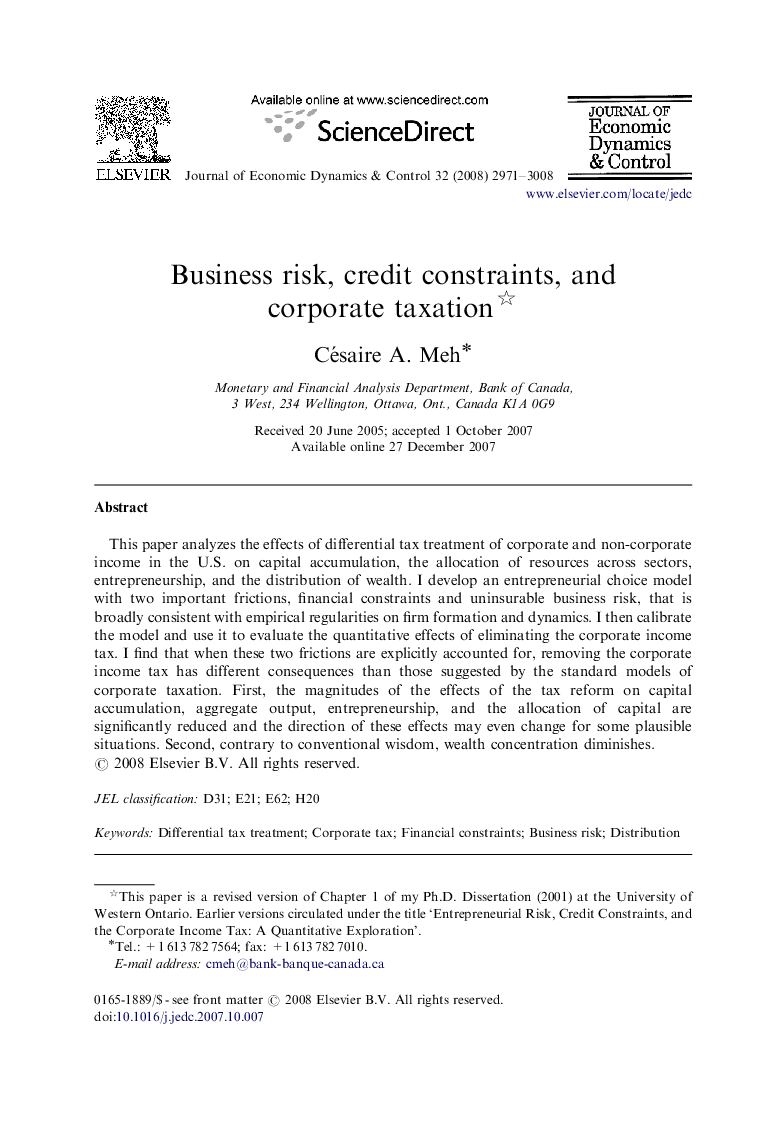| Article ID | Journal | Published Year | Pages | File Type |
|---|---|---|---|---|
| 5099834 | Journal of Economic Dynamics and Control | 2008 | 38 Pages |
Abstract
This paper analyzes the effects of differential tax treatment of corporate and non-corporate income in the U.S. on capital accumulation, the allocation of resources across sectors, entrepreneurship, and the distribution of wealth. I develop an entrepreneurial choice model with two important frictions, financial constraints and uninsurable business risk, that is broadly consistent with empirical regularities on firm formation and dynamics. I then calibrate the model and use it to evaluate the quantitative effects of eliminating the corporate income tax. I find that when these two frictions are explicitly accounted for, removing the corporate income tax has different consequences than those suggested by the standard models of corporate taxation. First, the magnitudes of the effects of the tax reform on capital accumulation, aggregate output, entrepreneurship, and the allocation of capital are significantly reduced and the direction of these effects may even change for some plausible situations. Second, contrary to conventional wisdom, wealth concentration diminishes.
Related Topics
Physical Sciences and Engineering
Mathematics
Control and Optimization
Authors
Césaire A. Meh,
